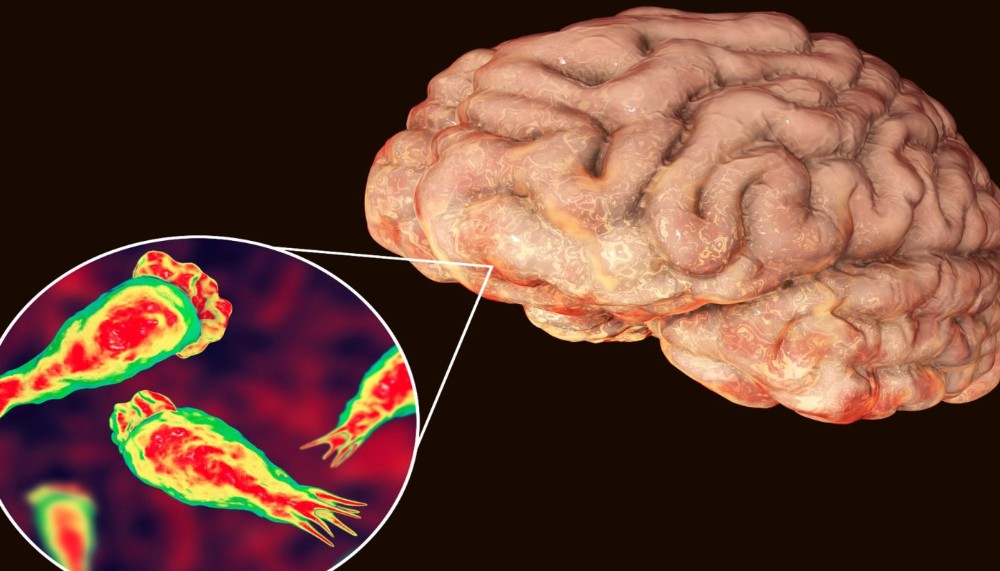Kozhikode, Kerala: Two more people, including a three-month-old baby, have died from amoebic meningoencephalitis in Kerala. This rare and often fatal infection is caused by the waterborne parasite Naegleria fowleri. Health officials at Kozhikode Medical College Hospital confirmed the deaths on Monday. With these cases, the August death toll has risen to three.
The Victims
The infant, from Omassery in Kozhikode, had been receiving treatment for a month before dying in the ICU on Sunday. The second victim, Ramla (52) from Malappuram, developed symptoms in July. She was first treated at a private hospital and later shifted to Kozhikode Medical College, where she passed away. Earlier, on August 14, a nine-year-old girl from Thamarassery had died from the same infection.
What Is Amoebic Meningoencephalitis?
The disease is caused by the “brain-eating amoeba” Naegleria fowleri. It infects humans when contaminated water enters the nose, often during swimming or bathing. From there, it travels to the brain and destroys tissue, leading to severe inflammation.
Prevention and Safety Measures
There is no vaccine for this infection. Preventive steps include:
- Avoid swimming in untreated or stagnant water
- Keep the head above water in ponds, lakes, or unchlorinated pools
- Use nose clips during water activities
- Ensure proper chlorination of water tanks and wells
Treatment and Response
Doctors use antifungal and antimicrobial drugs, but survival is rare without early diagnosis. Kerala’s Health Department has launched chlorination drives in Kozhikode, Malappuram, and Wayanad. Awareness campaigns are underway, and eight suspected cases are under treatment at Kozhikode Medical College Hospital.
Health officials have urged residents to remain alert and seek immediate medical help if symptoms appear.

